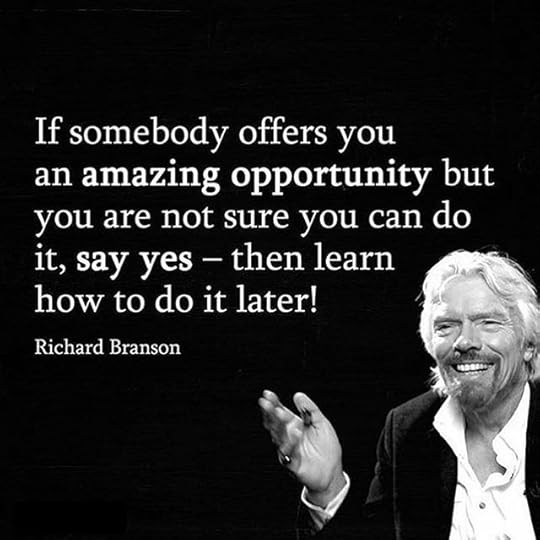Vivek Sood's Blog, page 38
April 11, 2018
Secret Answers to How to Write a College Essay Disclosed
Secret Answers to How to Write a College Essay Disclosed define proofread All you could need to do is say the magical words, ” produce my documents ” and you will procure the help you demand. First, the exact first point you ought to keep in mind in regards to pay to write informative article […]
The post Secret Answers to How to Write a College Essay Disclosed appeared first on Global Supply Chain Group.
Secrets About Do My Essay Exposed
Secrets About Do My Essay Exposed The Hidden Gem of Do My Essay Even a excellent article writer is designed to handle their time well to be able to freelance, which means he or she’s available always for the work. For several individuals creating essays is among the most bothersome duties on Earth. Our article […]
The post Secrets About Do My Essay Exposed appeared first on Global Supply Chain Group.
What You Need to Know About Essay Checker and Why
What You Need to Know About Essay Checker and Why Personalized fantasy essay can save your valuable time and also you might become far superior quality in lesser time if your range of habit firm is good. The exact first stage of this approach involves a purchase sort. Searching for your absolute top composing services […]
The post What You Need to Know About Essay Checker and Why appeared first on Global Supply Chain Group.
January 28, 2018
Are Good Business Transformation People Worth Their Weight in Gold?
A Large Number of Business Transformations Over the past 18 years I have facilitated, worked on, assisted in, and observed a large number of business transformation projects at a very close quarters. As a result, I have seen a countless number of business transformation people in action – many good, some bad, and a few […]
The post Are Good Business Transformation People Worth Their Weight in Gold? appeared first on Global Supply Chain Group.
November 6, 2017
Value of Trust in Supply Chain Management
Why Trust in Supply Chain Is Important? Recently, the value of trust in supply chain was brought home to me in a graphic manner. An owner of a medium sized business (who was trying to be one of our well-wishers) showed me (and one of our new recruits in sales management department) the way they […]
The post Value of Trust in Supply Chain Management appeared first on Global Supply Chain Group.
Who Can You Trust, and How Much?
Recently an owner of a medium sized business (who was trying to be one of our well-wishers) showed me (and one of our new recruits in sales management department) the way they were using dummy websites to generate leads for their business. He also mentioned that nowadays this is a very common practice to create dummy websites, even dummy companies and fake addresses for the sheer ease of doing so and anticipated potential benefits.
He wanted to encourage us to do the same thing. We listened to him politely, thanked him for his opinion, and refused to go down that path.
He was firmly in the camp of people believing that you have to fake it till you make it.
Obviously there is a huge contingent of people who follow this philosophy. To justify themselves they often quote Richard Branson saying this:

I don’t know if this phrase was truly said by the man himself. However I would feel a little bit uneasy if pilots in their airlines adopted this mantra. It basically means that they accept the job as a pilot hoping to figure out how it works later, meanwhile they are going to fake it till they make it.
I know I have carried the example to an extreme, and pilots do need certification before anyone offers them a job as such.
However, I am also aware that there are more subtle considerations such as aircraft types, routes and even airport characteristics where most pilots will not accept command of an aircraft till they know for sure they can do the job.
Like them, I am firmly in the camp which says ‘make it real and keep it real.’ The risks are far too high; and the numerous opportunities to train and learn without exposing your passengers (or business network partners) to the unnecessary risks make it almost callous to do otherwise.
Yet, many people persist.
Trust deficit and its side effects
This belief – fake it, till you make it – is usually based on the assumption that nobody will offer you a job if you’re perceived as not qualified for it.
On the contrary, you are the best person to judge whether you are truly competent enough to take on a job. At the same time, with the job offers comes the responsibility of choosing, whether to accept it, or not; the responsibility of evaluating your own skills, experience and competence for this particular job.
Unfortunately, there are far too many people forsaking this responsibility that can only apply at a personal level.
That is also the reason why there is a lot of trust deficit in the business world.
If you are faking it, your reader, your audience, your client, your customer will most likely know that you’re faking it. It is just a matter of time.
Whether you are a motor mechanic who’s faking the knowledge of the type of motor that you’re repairing or you’re a heart surgeon or any job in between. Faking it is definitely not going to make you happier or more successful for the simple reason that your customer will always be uneasy with you. Furthermore, in your heart you will always know that you are faking it, which is not the best thing for your self-confidence and self-respect.
Supply chain management is not a unique field which requires a large amount of trust between people to collaborate. In fact, trust is a fundamental requirement for all collaboration, cooperation and joint activities between human beings.
It becomes even more significant in supply chain management where it is both individual trust and institutional trust.
Why is trust so important anyway?
There is an important reason why I mention it.
As supply chains become more and more sophisticated, as they become more entangled and evolve into business networks, the need for trust within the supply chains becomes more and more intense.
Let’s take a specific example to make this generic statement more real.
Suppose you are a soft drink manufacturer, and the suppliers of empty cans has a captive plant right next to your bottling plant, you have a good chance of hearing about their business ups and downs and know well in time about events that might affect your supply. Now just substitute this captive supplier of packaging by a bunch of suppliers half way around the earth who might have significant cost advantage (because of manufacturing cost, for instance), and see how important it will be for you to keep open clear lines of communication in order to run your business smoothly and efficiently. 
Companies typically want to engage with supply chain partners who will be able to deliver on what they promise, barring a totally unanticipated event. If your business network partners are not fakes themselves, most likely they will not engage with you further when they find out that you’re faking it.
Components of trust
Although trust in supply chain management is a very popular topic, it is evident that establishing trust within the business network can be very challenging. It takes time, patience and effort of each and every supply chain partner. It can be even more difficult to maintain trust over time. As the concept of trust is rather abstract, it is also hard to measure. At the same time, despite all the difficulties and efforts you can be sure that developing trust with your suppliers and customers is worth the efforts.
So what is trust and what are the components of it?
How to make sure that there is enough trust between you and your supply chain partners?
Is it always worth the investment of your time and effort?
Is there such thing as too much trust within the business network?
First of all, trust in supply chain management, as in any other cooperation between people, includes numerous factors.
You should maintain good communication at all times between you and your partners. Communication also means honesty and openness. Fairness and loyalty can also be very helpful in establishing trust. Another integral part is the competence and your openness about whether you are qualified for this particular job or not. This kind of relationship requires goodwill and willingness not to exploit your partner’s vulnerabilities. This is even more important because of the confidential information which is shared between supply chain partners and with management consultants.
Levels of trust
My colleague, who was at the meeting mentioned at the start of this article, wondered aloud about the advisability of trying to create some websites to generate additional leads for our training business.
And my answer was an unequivocal “no”.
The reason was very simple.
I like to make it real – and keep it real. 
I gave my colleague an example of the difference between level of trust required for a pharmacist, a general practitioner and an open-heart surgeon.
When you go and buy a medicine from a pharmacy, you do need a certain amount of trust. You need to be confident that the pharmacist will indeed give you the formulation that the doctor has prescribed. You need to be sure that it is pure, unadulterated and sold at the market price.
However the level of trust required from a general practitioner is much higher. Because you will have to literally remove your clothes in front of him. In this case you need the confidence that your general practitioner is able to examine you, to find out what was wrong.
This trust requirement further multiplies when we are talking about a heart surgeon. You need to be completely sure of your heart surgeon as you need to entrust him your own body, because he will be actually cutting you open and looking literally at your heart. Imagine a heart surgeon who lives with the philosophy mentioned earlier.
In the situation where people need to share confidential information, where the profitability of your business depends largely on the competence and honesty of someone else, it is critical to make efforts in order to develop trust. A low level of trust in this case may give a bit more independence and space at first but later on it will definitely result in lower productivity and profitability in supply chain.
 Trust in management consulting
Trust in management consultingManagement consultants by their nature need to establish a very firm bond of trust with their customers. The clients need to be able to entrust them with a lot of confidential data and information as well as their innermost strategies so that management consultants could work successfully and effectively.
To be able to establish this kind of firm bond of trust you have to make sure that there is no possibility that your customer misunderstands any of your marketing messages. You should be unambiguous about your market position. It takes us to the next point.
It is always better to say clearly and honestly if the required skills or competences for a particular project are not within your company’s skillsets.
Let me make it real with another example. Very often when we formulate segmented supply chain strategies for our clients’ business, we need to understand the customer segmentation criteria. As part of that activity we need market research data, which is obviously outside the competency set of our business. I am very clear with my clients when such situations arise. I also say that I am in a position to recommend a few good market research firms, if necessary, but customers are welcome to choose any others that they want to use so long as the required segmentation data is available at the end of the exercise.
Sophisticated clients always appreciate a consulting company which is honest about where their competency starts and where it ends. On the other hand there are consulting firms who pretend that they are able to magically do everything.
In most cases they end up doing nothing well enough, and in the long term they usually lose not only the trust of their clients, but also their own self-respect.
Trust in the 5-STAR Business Network
Looking beyond management consulting, as mentioned before, trust is important for collaboration between supply chain partners. When you are working with your supply chain partners – suppliers and customers – in innovation, in order to create new products faster, in enhancing the profitability and reducing the cash-to-cash cycle, you know that relying on fakes will only come back and bite you at the worst possible time.
Typically deep understanding of customer segments is required to be able to configure a segmented supply chain so that the end-to-end business strategy is in coherence. This activity obviously requires an immense amount of trust running all the way through the entire business network.
However, similar to the example comparing a pharmacist, a general practitioner and a heart surgeon, the required trust will always depend on the situation and on the level of collaboration that we need from each participant within the 5-STAR Business Network.
The post Who Can You Trust, and How Much? appeared first on Global Supply Chain Group.
November 4, 2017
How Can I Improve Supply Chain In My Company? Five Signs of a Broken Supply Chain
Leading Executives Are Continually On a Lookout to Improve Supply Chain in Their Company Most CEOs and CXOs think about how to improve supply chain. They are surprised to discover that what they thought was a well-functioning Supply Chain turned out to hide such a tremendous amount of problems. Five tell-tale signs that help you […]
The post How Can I Improve Supply Chain In My Company? Five Signs of a Broken Supply Chain appeared first on Global Supply Chain Group.
Could Your Supply Chain be Cracking? Five Tell-Tail Sign for CEOs and CFOs
Most CEOs are surprise to discover that what they thought was a well-functioning Supply Chain turned out to hide such a tremendous amount of problems.
Five tell-tale signs that help you recognize a broken supply chain:
Silos mentality
The big companies are often confronted with this problem. The different departments of the firm are not sharing information properly, and in case of failure the departments tend to evade responsibility.
Unhappy customers
The quality of the service is directly affected by a broken Supply Chain. Customers are not only looking for a good quality offer but also reliable one. Brand image is at stake here.
Struggling sales force, declining market share
The weakness of the reliability of the supply chain makes the work of the sales force more difficult as the brand image of the product is becoming less attractive. Even low prices are less appealing to the customers, because the competitors win on service. And, when you win by reducing pricing, you encounter the next problem.
Eroding margins
A broken Supply Chain is a handicap that hits on both fronts. Rising logistics cost raises the cost of the goods sold. At the same time, poor service can only be overcome by lower prices.
The company faces a dilemma. Either raise the price to maintain the margins at the risk of losing sales, or accept the drop in profitability. Most companies opt for the second option – and blame the competition. Only a few recognise the root cause – the broken supply chain.
Burgeoning inventories and missed deliveries
Many CEOs are surprised to find both the problems at the same time – overflowing warehouses, and missed deliveries. The reason is simple – their supply chain carries the wrong type of inventories, and in the wrong places. People do their best – by hunting around for the right inventory in the shortest period of time, and by expediting. But, a better solution is to carry the right inventory in the right place.
To improve the performance of your supply chain we provide a tailored solution to each of our clients for more information click here or contact us.
November 2, 2017
Why Almost Everybody is Missing the Most Important Point in Their Solution to Amazon’s Threat to Australian Retailers
Yesterday (on 2nd November 2017) I happened to briefly glance at the Australian Financial Review – the key finance newspaper in this country while I was waiting in the lobby for a meeting. No more do I subscribe to this newspaper, because it appears to be growing more and more out of touch with business reality, and becoming more a shill for vendors with deep advertising budgets, and small brains. Its content in terns of financial and economic news is excellent, but somehow the journalists seems to miss the major shift in the business models to B2B Networks.
Taking a Sword to Fight a Nuclear Missile
Yesterday’s newspaper seemed to be predominantly dedicated to a conference on e-commerce related subjects. I do not remember the specific topic of the conference, and it does not even matter because the entire debate was centered around Amazon’s entry into Australian market place, and the threat it poses to the Australian retailers and businesses.
Indeed, the organisers, and the newspaper, had identified the burning issue of the day for Australian businesses. Looking at the issues, I almost thought of subscribing to the newspaper again.
But a little more unpacking of the pages revealed that almost all the solutions on offer were marketing and sales related, or new age technology related.
Nothing beats a carefully crafted supply chain strategy, executed with precision and flexibility - especially for business transformations in dire circumstances. This point cannot be emphasised enough.
What people forget is that Amazon’s success is even more dependent on its incredible supply chain.
Fighting this successful behemoth without an equally effective supply chain is akin to deciding to fight against nuclear missiles with swords.
Are Australian Retailers Being Led Down A Rosy Path in Their Response to Amazon's Entry?
Most people still do not even know what supply chain really means. If you doubt me – just watch the short (1.5 minutes) video below, and conduct the experiment with 10 people you know:
Lest I leave you with a wrong conclusion, I am not deriding marketing and technology solutions, because they do have a place in the overall campaign. But, if you get an impression from the newspaper (or the conference that seemed to dominate yesterday’s paper) that somehow you are going to outmarket Amazon just using such solutions – you better think again.
Nothing beats a carefully crafted supply chain strategy, executed with precision and flexibility – especially for business transformations in dire circumstances. This point cannot be emphasised enough.
I have written extensively in many other blog posts on how to do just that – all you have to do is explore a bit in the categories and tags on the right of this page. Some of the titles from over the year are in the image on top of this page.
For real leaders, who want to make substantial and deep positive impact – I do recommend my book The 5-STAR Business Networks.
If you have the budget, it is also worthwhile asking for a workshop based on the same material – but we only have limited slots, and already have a big backlog for that.
4 shares
Share4
Share0
Share +10
Tweet0
Pin0
October 25, 2017
The Newest Way to Make Your Business Network Great
In his book The 5-STAR Business Network (http://bit.ly/5-STARBN), Vivek Sood mentions the concept of synchronicity, and focus on Carl Jung’s perception of it. The concept of synchronicity has a specific definition in Carl Jung’s mind.
For him, it is a causal connection of two or more psycho-physic phenomena. He started to use this word in the 1920s to describe two or more casually unrelated events happening together in a meaningful way. Although we could write pages on this concept, a short definition would be a coincidence that is not senseless. Carl Jung observed this phenomenon on a patient for the first time.
A patient dreamt about a golden scarab, and the next day, the same insect hit his cabinet’s window. The question that comes up with this kind of situation is: Was the relationship between the events random or was there some hidden force?
The concept of synchronicity has evolved through the 20th century and many studies exist about it, with many theories and explanations. However, this is Carl Jung’s thought in which we are interested. Indeed, his vision of meaningful coincidence is what I think happens with business relationships. Synchronicity is what enables our business networks to expand and to create more value.
To pursue his work, Jung started to collaborate with Wolfgang Pauli. This collaboration lasted for several decades, making conjectures about synchronicity. They conjectured that with a link between the apparently disparate realities of matter and mind were existing. Pauli called it a “missing link”.
While accretion and synergy are two other concepts that create value, synchronicity is the best. Indeed, synchronicity provides even more multiplied effects than synergy, whereas we usually think synergies are the best we can achieve.
Global business networks can become very valuable because of synchronicity power. While synergy provides a good value (2 + 2 = 5, whereas with accretion 2 + 2 = 4), synchronicity is the most valuable. Its mathematical principle is described as follows: 2 + 2 = 22. This is the power contained in this concept.
Therefore, you must focus on this concept to develop your business networks and make it more valuable than by using simple synergies or accretion. Visualization, if not faith, is compulsory to be able to understand this concept and make it work for you. Besides, the concept of synchronicity relies on key principles that may not be available for anyone. In fact, it is all about abundance of outcomes based on wisdom, creativity and cooperative effort. This is the cornerstone of the value of synchronicity.
Consequently, business networks are great and work successfully for your business when synchronicity is the main ingredient. This is the most powerful ingredient that can help you build a great business network. However, this is still a matter of coincidences, although they are meaningful. In fact, the economic metaphor that can be utilized for synchronicity strategy is the free networks.
Accretion relies on free markets. When your strategy evolves to improve the outcomes, through synergies, the appropriate term is “managed markets”. Then, the best strategy, which includes synchronicity, leads to free networks, which is much more significant and valuable than free markets or managed markets.
Thus, step-by-step, you can improve your business strategy, using your business network and gradually implementing strategies of synchronicity. Synchronicity will create the best value through a great business network.
by Anais Lelong



